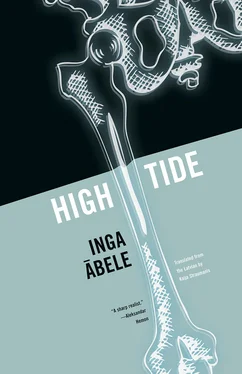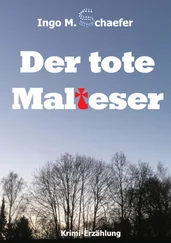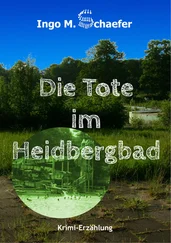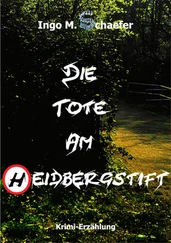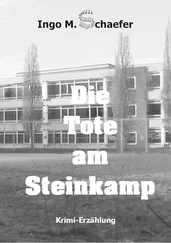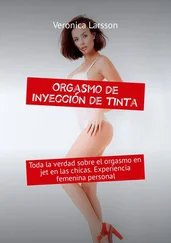The woman nodded feebly. She rummaged in a drawer without looking away from him and placed a candle on the table. She burned her fingers with the first match.
“Tell me how he died,” she said, her voice somber.
“He died at night. I was writing a letter to my wife, he was lying down. I thought he’d fallen sleep. Then he suddenly started coughing, ran to the door and banged on it like crazy. All at once, about a bucket of blood spewed from his mouth. And then he fell over. I lifted him a bit and held him, but he had already started with the death shakes. The guards came and took him away.”
There was a moment of silence.
“Don’t worry, it happened quickly. He didn’t suffer. It was over the second he ran to the door. Later the nurses said one of his pulmonary veins had burst.”
More silence.
“But he managed to send the card out. When’s your birthday? Sometime in May, right?”
“May second.”
“And what’s this about the Caucasus, if it’s not a secret?”
“He was a really good person,” she finally said.
“I know. So what about the Caucasus?”
The woman thought for a bit.
She dreamt that in the Caucasus steppe—
He lay still, a bullet in his breast…
And yet, I am Ruslan’s now,
And will be faithful to my vow.
Andrejs propped the card against the windowpane so its edges were surrounded by the reflection of the candlelight.
The woman said:
“We liked poetry, like Pushkin’s ‘Ruslan and Ludmila.’ I’d read it to him when our kids were still little. Before he got mixed up in that damn gang and robbed that gas station… He was so surprised that there was a poem like that — about us, he said — just imagine! About us!”
The woman stood and opened the refrigerator. She pushed the champagne toward Andrejs, having suddenly grown very calm. He opened the bottle just as calmly and poured the chilled liquid into the glasses. In the reflection of the flame, the bubbles dancing in the sparkling wine seemed like lonely planets.
Andrejs lifted his glass:
“Well then — to us! To all of us.”
The woman nodded, and they both drank. Bliss — ice-cold bliss.
The woman spoke:
“And yours got better?”
“What?”
“Tuberculosis?”
Andrejs rubbed his cheek. The champagne made him feel very alive.
“There was actually nothing wrong with me. Time was running out. The last thing people had on their minds back then was prisons. There was famine in the prisons, actual famine, unemployment, and insanity. In order to survive I ground sugar into powder and inhaled it. A lot of people did it. And man, the lung spots it would produce on the X-rays! Say what you want, but the food in the hospital was much better. But after a while I started to think I really was sick. Every night the taste of blood in my mouth, at first in my dreams and later for real. You spit and see blood. Every night. Nothing during the day. During the day — powdered sugar.”
They’d emptied their glasses. The woman reached across and poured another.
“But the night Ruslans died… It was like — what’s so terrifying about it, people die! I was in for murder. That’s how it went.”
He said it before he realized what he was saying, and looked at the woman. She looked straight back at him. There was no fear in her eyes, no surprise, no questions, just an unwavering stare.
“But that night he died, it happened so fast. Didn’t even take five minutes. He was alive, and then all of a sudden I was holding him in my arms and everything was covered in his blood. The guards came and took him away. And then it was quiet again. I went back to my bed and found the half-written letter to my wife. I couldn’t finish it, the pen moved around the paper on its own, my thoughts had left me. Just five minutes — and it was like the letter was finished by someone else. Understand?”
He downed the champagne and gritted his teeth. Words, words. The devil had once again urged him to wear his heart on his sleeve. There was no point. He should have left when he had the chance.
“Another drink, artist!”
The woman poured the rest of the champagne. A good woman. A woman was supposed to be like that — warm as a bread oven. He wanted to tell her everything, but it wasn’t possible. There are certain thoughts you should keep to yourself.
“If I can, I’ll recite a poem for you.”
This kind of courage made him break into a sweat. Ieva had always encouraged him to write poetry, but he’d never been good at it. Ieva, on the other hand, was — you could even say that she put everything that happened down on paper. Like photography, but what you could do with photography was still entirely different from whatever prompted words. Write what you felt the moment you opened your eyes this morning, she’d urge him. He sat down with a piece of paper and sighed and complained until he was done. He thought it needed to turn out good if he gave into Ieva’s pushing. But it wasn’t good, he knew so. Ieva thought so, too; she was quiet for some time after she’d read it. “I woke up early, the alarm clock rattled like a chainsaw…” It went something like that, and it wasn’t like it didn’t make sense. What Andrejs saw was nothing like the morning or an alarm clock on the paper, but rather his own useless, Sisyphean battle with language, with words. And this nerve-wracking battle left that particular morning in its wake, that morning — one of many, but so unrepeatable. He hadn’t known how. But now?
— black woods surround you, wipe your forehead
black swamps surround you, stay here and live
the teeth of the white dog cannot reach to bite you
black fields hold their hissing hands out to you
take shelter behind the pine forest, gather dropwort
black swamps surround you, wipe your forehead
your retreat to the ninth breath was not in vain
keep your sorrow behind you, your joy in your arms
there will be a sharp fog when you open your eyes
the teeth of the white dog cannot reach to bite you
the breath and the palm, they will guide you
black woods surround you, don’t cry, but sing…
He had been left alone in the dark expanse and tore the lines from deep within his chest like flaming bullets, like his life depended on it. They died and were born from the death of the last, joined like the links in a chain of logic that only he understood, and they held fast. In it wavered his childhood, moments from the murder, serving his guilt and time, glimmers of Ieva and Monta, of his mother and father, and the black woods — places that, when he saw them, always caused a sharp ache in his heart because you could also love a place to the point where seeing it made your chest feel it was on fire.
Then the poem was over and he snapped out of it, thrown back into the shallows, into a strange kitchen where he’d said too much and, even worse, bared his soul through words.
Because of that third glass! Hadn’t life taught him all good things come in twos? Two cigarettes. Two glasses. Have a third and the rest of the numbers are redundant.
Andrejs rushed out of the kitchen and started pulling on his coat in the dark hallway. The woman followed quietly behind him like a cat and turned on a tiny, yellow wall lamp. She stroked his shoulders, neck, unshaved cheek, everywhere she could touch his skin.
She whispered:
“Such a beautiful poem. Did you come up with it in prison?”
“No, just now. And what about you?”
“Me — what?”
“He’s dead, but you’ve moved on?”
“Yes, slowly. What else can you do?”
Читать дальше
